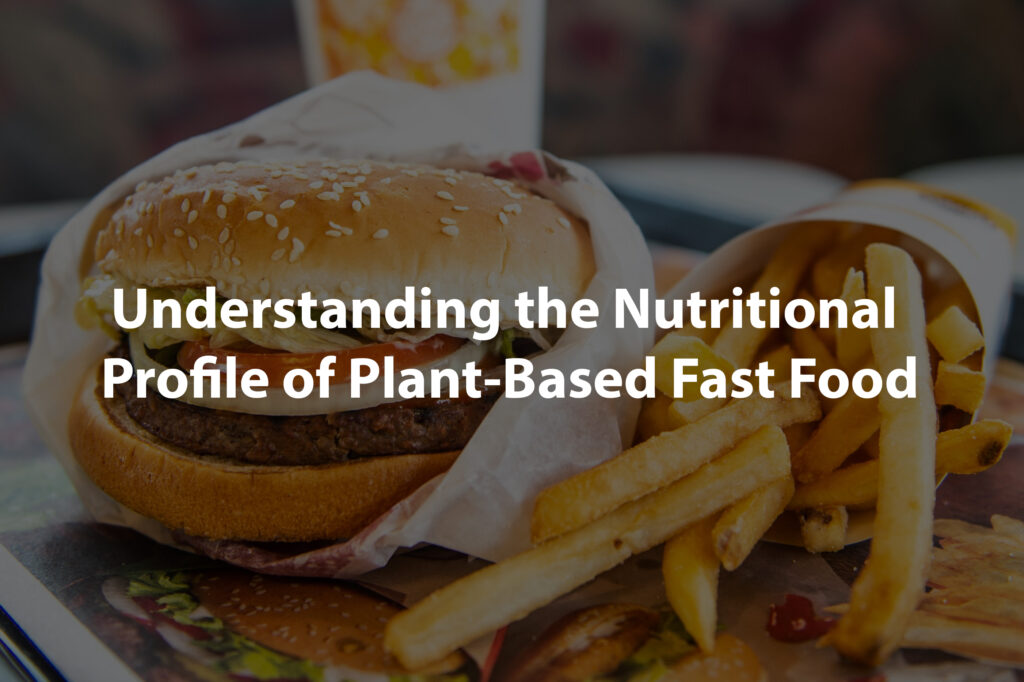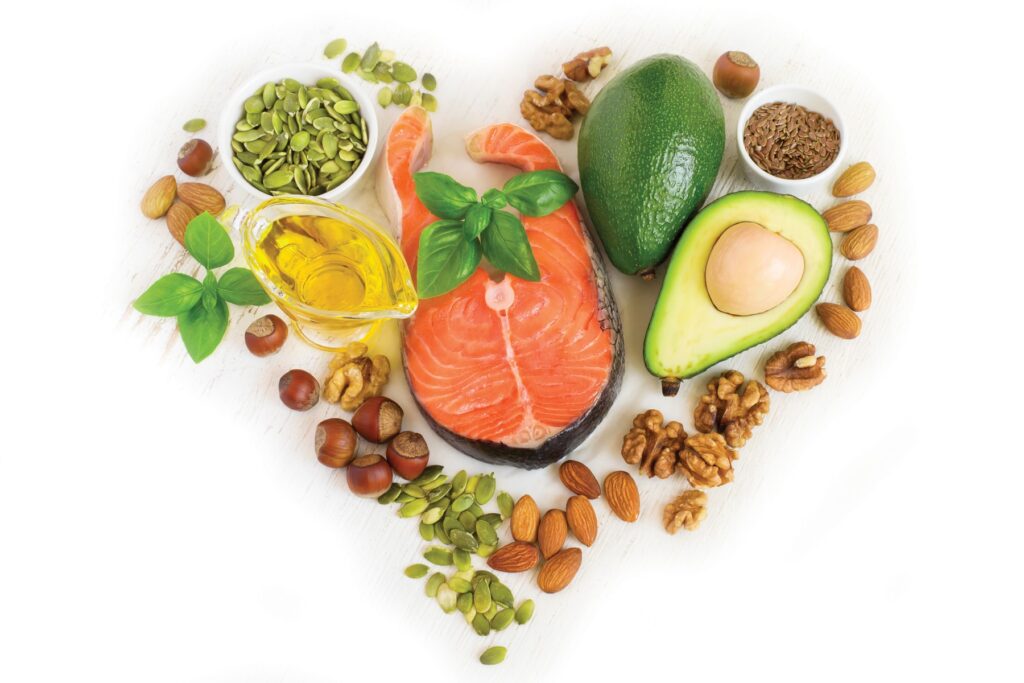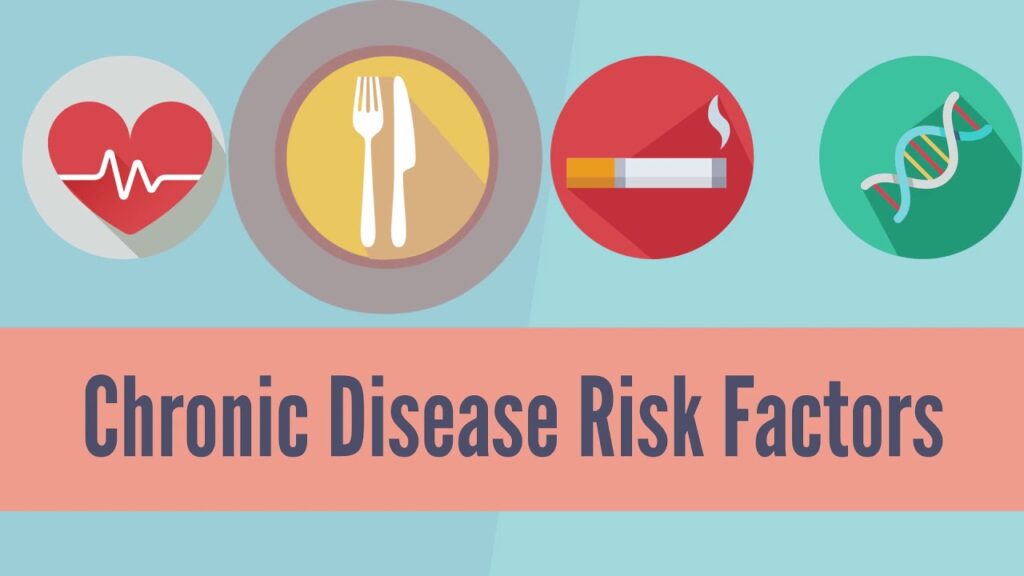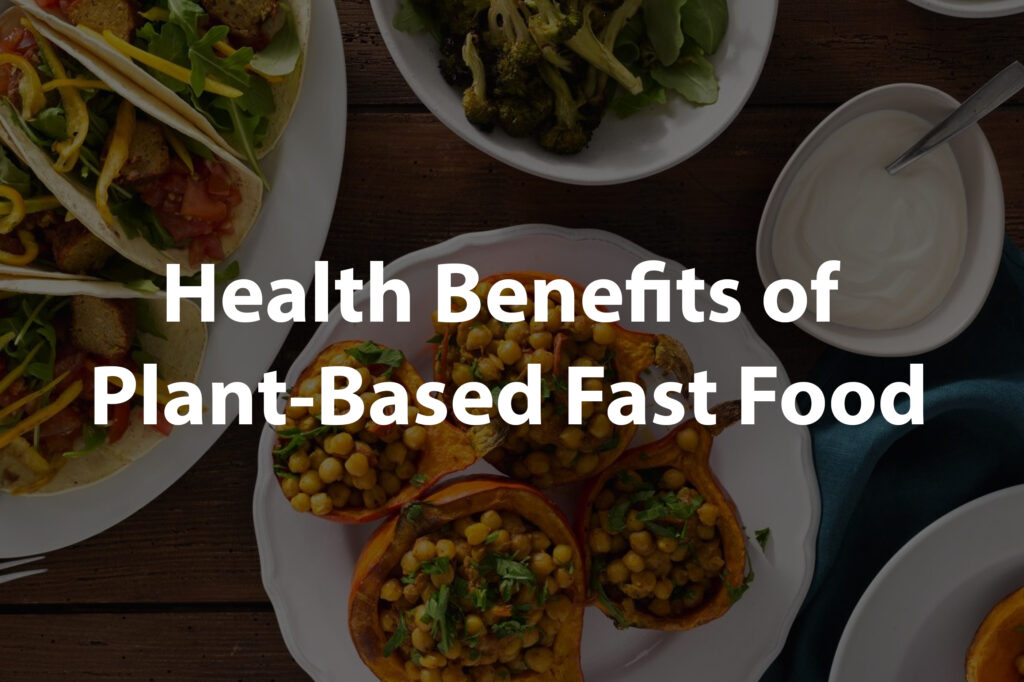Plant-based fast food is experiencing an unprecedented surge in popularity across the United States. As more people adopt a conscious approach to their dietary choices, the demand for plant-based options has skyrocketed. This shift is driven by a multitude of factors, including health considerations, environmental consciousness, and a desire for more ethical food sources. In response to this growing demand, a plethora of innovative plant-based fast-food establishments has emerged, offering a delicious array of meatless burgers, hearty salads, and flavorful plant-based alternatives to traditional fast-food favorites. Join me as we explore the phenomenon of plant-based fast food and delve into the reasons behind its remarkable rise in popularity throughout the USA.
Common Misconception: Plant-Based Fast Food is Harmful to Health.
The common misconception that plant-based fast food is detrimental to one’s health couldn’t be further from the truth. In fact, it’s quite the opposite. Plant-based fast food can be a nutritional powerhouse, offering a variety of wholesome ingredients bursting with essential vitamins, minerals, and antioxidants. By focusing on plant-derived proteins, whole grains, and an array of colorful fruits and vegetables, these options can provide a balanced and nourishing meal. So bid farewell to the notion that plant-based fast food is anything less than a delicious and health-conscious choice for your well-being.
Prepare to have your preconceived notions shattered as we embark on a journey to debunk a pervasive myth. It’s time to challenge the widely held belief that plant-based fast food is synonymous with a compromise on taste, satisfaction, and overall health. In this informative discussion, we will delve into compelling research, expert insights, and firsthand experiences to unravel the truth behind this fallacy. By examining the nutritional composition, innovative culinary techniques, and diverse flavors offered by plant-based fast food options, we will reveal the hidden potential and undeniable benefits of this burgeoning food trend.
Understanding the Nutritional Profile of Plant-Based Fast Food
Let’s embark on a journey to unravel the nutritional secrets of plant-based fast food. By exploring the diverse range of plant-derived ingredients and their impact on our well-being, we will gain a deeper understanding of the nutritional profile that makes these options so enticing. Let’s get understand the nutritional profile of plant-based fast food.

Exploring Fast Food Ingredients:
Fast food alternatives have come a long way in terms of offering a remarkable variety of plant-based ingredients. From nutrient-packed legumes like lentils and chickpeas to versatile whole grains like quinoa and brown rice, these alternatives showcase a diverse range of plant-based options. Colorful and vibrant vegetables such as kale, spinach, and bell peppers add both flavor and nutritional value to these creations.
Additionally, the emergence of plant-based proteins like tofu, tempeh, and seitan has revolutionized the fast food landscape, providing delectable alternatives to traditional meat-based dishes. With such an extensive array of plant-based ingredients at play, the possibilities for flavorful and satisfying fast food alternatives are truly limitless.
Nutritional Benefits of Fast Food Ingredients:
Legumes, whole grains, and vegetables are key ingredients that offer a plethora of nutritional benefits in plant-based fast food. Legumes, such as lentils and beans, are rich in protein, fiber, and essential minerals, making them a vital component of a balanced diet. They provide satiety, promote digestive health, and contribute to stable blood sugar levels. Whole grains, like quinoa and brown rice, are packed with complex carbohydrates, fiber, and various nutrients, offering sustained energy and aiding in digestion.
They also contain valuable vitamins and minerals, such as iron and magnesium. Vegetables, with their vibrant colors and diverse flavors, are nutritional powerhouses. They are low in calories, high in fiber, and packed with vitamins, minerals, and antioxidants that support overall health and well-being. Including these nutrient-dense ingredients in plant-based fast food not only enhances the taste but also provides a wide range of essential nutrients for a nourishing meal.
Reducing Saturated Fat and Cholesterol:
Unlocking the path to a healthier lifestyle, plant-based options offer a dual benefit of reducing saturated fat and cholesterol intake. By shifting away from animal-derived ingredients, plant-based alternatives provide a welcome escape from the detrimental effects of saturated fats and cholesterol on our well-being. Embracing the power of plant-based fast food empowers individuals to make conscious choices that support heart health, lower the risk of cardiovascular diseases, and pave the way for a more vibrant and energetic life.
Plant-Based Fast Food: Your Key to Lower Saturated Fat
Plant-based fast food offers a compelling solution for reducing saturated fat intake. By eliminating or minimizing the use of animal-based products, which are typically high in saturated fats, plant-based alternatives provide a healthier option. Plant-based proteins like tofu, tempeh, and legumes can be used as substitutes for meat, reducing saturated fat content while still offering a good source of protein.

Additionally, plant-based oils, such as olive oil and avocado oil, can be used in place of animal fats, further reducing saturated fat intake. By focusing on whole foods like fruits, vegetables, whole grains, and plant-based proteins, plant-based fast food promotes a more balanced and heart-healthy approach to eating, helping individuals make significant strides in reducing their saturated fat consumption.
No Cholesterol, Better Health: The Benefits of Plant-Based Options
When it comes to the positive impact on health, the absence of cholesterol in plant-based options takes center stage. Unlike animal-derived foods, which often contain high levels of cholesterol, plant-based alternatives offer a cholesterol-free alternative. This remarkable characteristic can have significant benefits for cardiovascular health. Elevated cholesterol levels are associated with an increased risk of heart disease and other related conditions.
By embracing plant-based options, individuals can reduce their dietary intake of cholesterol and promote a healthier heart. Furthermore, plant-based foods are typically rich in fiber, which aids in lowering cholesterol levels in the body. With a combination of a cholesterol-free diet and the abundant fiber found in plant-based options, individuals can foster a heart-healthy lifestyle and enhance their overall well-being. Say goodbye to cholesterol worries and welcome the positive impact of plant-based choices on your health.
Emphasizing Fiber and Antioxidants:
When it comes to plant-based fast food, the emphasis on fiber and antioxidants takes center stage. These nutritional powerhouses are abundant in plant-derived ingredients, offering a multitude of health benefits. Fiber plays a crucial role in promoting healthy digestion, maintaining blood sugar levels, and supporting weight management.
Unveiling the Fiber-rich Delights of Plant-Based Fast Food
Plant-based fast food options boast a remarkable feature that sets them apart: their high fiber content. Fiber, an essential component of a healthy diet, plays a pivotal role in supporting digestion, promoting satiety, and maintaining overall well-being. Plant-based ingredients like legumes, whole grains, fruits, and vegetables are naturally abundant in fiber, making them a delightful addition to any meal.
Whether it’s a hearty bean burger, a nutrient-packed grain bowl, or a vibrant salad bursting with fresh produce, plant-based fast food offers a wealth of fiber that aids in digestion, helps regulate blood sugar levels, and promotes a feeling of fullness. Embrace the fiber-rich wonders of plant-based fast food and nourish your body with every delicious bite.
Harnessing the Power of Antioxidants: Reducing the Risk of Chronic Diseases
Antioxidants play a pivotal role in safeguarding our health by reducing the risk of chronic diseases. These powerful compounds counteract the harmful effects of free radicals in our bodies, which can cause oxidative stress and damage our cells. Plant-based fast food, with its abundance of fruits, vegetables, and whole grains, offers a rich source of antioxidants. By incorporating these antioxidant-rich ingredients into our diet, we can bolster our body’s defense system, supporting optimal health and well-being.

Research suggests that a diet high in antioxidants may help lower the risk of chronic diseases such as heart disease, certain cancers, and neurodegenerative disorders. By indulging in plant-based fast food options bursting with colorful produce, we fortify our bodies with a diverse range of antioxidants, helping us maintain vitality and thrive in the face of potential health challenges. Embrace the importance of antioxidants and pave the way to a healthier future with every plant-based choice you make.
Health Benefits of Plant-Based Fast Food
Plant-based fast food opens the door to a world of remarkable health benefits. With a focus on wholesome, plant-derived ingredients, these options offer a wealth of advantages. From reducing the risk of chronic diseases to promoting heart health, weight management, and supporting disease prevention, plant-based fast food has a lot to offer.

Nurturing Cardiovascular Health: The Positive Impact of Plant-Based Options
Plant-based options have emerged as champions in promoting cardiovascular health, offering a multitude of benefits that contribute to a stronger heart and a healthier circulatory system. These options, rich in fruits, vegetables, whole grains, legumes, and plant-based proteins, provide a nutritional arsenal that supports heart health in various ways.
- Firstly, their low saturated fat and cholesterol content helps reduce the risk of developing cardiovascular diseases.
- Secondly, the abundance of fiber found in plant-based options aids in maintaining healthy cholesterol levels and supports optimal blood pressure regulation.
Additionally, the presence of antioxidants, vitamins, and minerals in plant-based ingredients nurtures the integrity of blood vessels, reduces inflammation, and enhances overall cardiovascular well-being. By embracing plant-based options, you empower yourself to make choices that prioritize your heart health, paving the way for a vibrant, thriving cardiovascular system and healthier life.
Reducing Heart Disease Risk: The Science Behind Plant-Based Options
Numerous studies have consistently demonstrated the remarkable potential of plant-based options in reducing the risk of heart disease. Research conducted by esteemed institutions has revealed compelling evidence showcasing the positive impact of plant-based diets on cardiovascular health. A study published in the Journal of the American College of Cardiology (ACC) found that adherence to a plant-based diet was associated with a significantly lower risk of developing heart disease.
Another study published in the British Medical Journal reported that individuals following a plant-based diet had a 32% lower risk of experiencing a cardiovascular event compared to those consuming animal-based diets. Furthermore, the American Heart Association has stated that plant-based diets, when properly balanced, can help prevent and manage heart disease. These studies and expert opinions provide a strong foundation for the undeniable connection between plant-based options and a reduced risk of heart disease, solidifying the credibility of embracing a plant-based approach for optimal cardiovascular well-being.
Unveiling the Role of Plant-Based Fast Food in Weight Loss and Maintenance
Plant-based fast food can be a valuable ally when it comes to weight loss or weight maintenance. These options are typically lower in calories and saturated fats compared to their animal-based counterparts, making them a favorable choice for those aiming to shed pounds or manage their weight. The abundance of fiber in plant-based ingredients promotes a feeling of fullness, helping to curb excessive hunger and reduce calorie intake.
Moreover, plant-based fast food often includes nutrient-dense ingredients like fruits, vegetables, whole grains, and legumes, which provide essential vitamins, minerals, and antioxidants without contributing excessive calories. By incorporating plant-based options into your diet, you can enjoy satisfying meals while simultaneously supporting your weight loss or weight maintenance goals. Embrace the power of plant-based fast food as a delicious and nutritious tool to achieve a healthier and more balanced weight.
The Importance of Portion Control and Mindful Eating
In the quest for a healthy and sustainable lifestyle, portion control and mindful eating play vital roles. Portion control involves being mindful of the quantity of food consumes, ensuring that it aligns with your body’s needs. By practicing portion control, you can prevent overeating and maintain a balanced calorie intake. Mindful eating, on the other hand, emphasizes being fully present and aware of your eating experience. It involves paying attention to hunger and satiety cues, savoring each bite, and cultivating a deeper connection with the food you consume.
Both portion control and mindful eating are essential for maintaining a healthy weight and overall well-being. When it comes to plant-based fast food, portion control allows you to enjoy these delectable options while still maintaining a balanced diet. Mindful eating helps you appreciate the flavors, textures, and nourishment provided by plant-based meals, fostering a healthier relationship with food. By incorporating portion control and mindful eating into your lifestyle, you can embrace a balanced approach to nourishing your body and savoring every moment of your culinary journey.
Plant-Based Options and the Reduction of Disease Risks
Plant-based options have emerged as a promising strategy for reducing the risk of certain diseases, including diabetes and certain cancers. Scientific research has consistently shown that embracing a plant-based diet can have a positive impact on disease prevention and management. In the case of diabetes, plant-based options rich in fiber, whole grains, and legumes can help regulate blood sugar levels, improve insulin sensitivity, and lower the risk of developing type 2 diabetes.
Similarly, studies have suggested that a plant-based diet, abundant in fruits, vegetables, and phytochemical-rich foods, may contribute to a decreased risk of certain types of cancers, such as colorectal, breast, and prostate cancers. The powerful combination of antioxidants, phytochemicals, and other bioactive compounds found in plant-based ingredients is believed to exert protective effects against cellular damage and the formation of cancer cells. By embracing plant-based options, individuals can take a proactive approach to their health, reducing the risk of these debilitating diseases and paving the way for a vibrant and disease-free future.
Reference of Scientific Studies:
Scientific studies have provided compelling evidence supporting the potential benefits of plant-based options in reducing the risk of certain diseases. Here are a few notable studies:
- Diabetes: A study published in the journal JAMA Internal Medicine analyzed data from over 200,000 participants and found that adherence to a plant-based diet was associated with a significantly lower risk of developing type 2 diabetes.
- Colorectal Cancer: Research published in the journal JAMA Internal Medicine examined dietary patterns and colorectal cancer risk and found that a plant-based diet was associated with a reduced risk of developing colorectal cancer.
- Breast Cancer: A study published in the British Journal of Cancer conducted a meta-analysis of observational studies and concluded that a higher intake of fruits, vegetables, and fiber from plant-based sources was associated with a reduced risk of breast cancer.
- Prostate Cancer: Research published in the journal Cancer Epidemiology, Biomarkers & Prevention examined the relationship between dietary patterns and prostate cancer risk and found that a plant-based diet was associated with a lower risk of developing prostate cancer.
These studies, among others, provide robust scientific evidence supporting the potential benefits of plant-based options in reducing the risk of diabetes, colorectal cancer, breast cancer, and prostate cancer. Embracing a plant-based diet rich in diverse fruits, vegetables, whole grains, and legumes can be a proactive step towards safeguarding against these diseases and promoting overall health and well-being.
Conclusion:
After carefully examining the evidence, it becomes clear that the myth surrounding plant-based fast food being detrimental to one’s health is unfounded. In fact, plant-based fast food can offer a range of nutritional benefits and play a positive role in maintaining a healthy lifestyle. By focusing on plant-derived proteins, whole grains, and an abundance of colorful fruits and vegetables, these options can provide a balanced and nourishing meal. The high fiber content, absence of cholesterol, and reduced saturated fat levels contribute to improved cardiovascular health.
Frequently Ask Questions:
Q: Does plant-based fast food lack essential nutrients?
A: No, plant-based fast food can be rich in essential nutrients like vitamins, minerals, and antioxidants. By incorporating a variety of plant-derived proteins, whole grains, fruits, and vegetables, plant-based options offer a well-rounded nutritional profile.
Q: Is plant-based fast food high in calories?
A: Plant-based fast food can be lower in calories compared to traditional fast-food options. By focusing on nutrient-dense ingredients and minimizing the use of oils and added fats, plant-based options can support weight management goals.
Q: Can plant-based fast food be satisfying and filling?
A: Absolutely! Plant-based fast food can be both satisfying and filling. The fiber content from whole grains, legumes, and vegetables promotes satiety, helping you feel full and satisfied after a meal
Q: Is it possible to get enough protein from plant-based fast food?
A: Yes, plant-based fast food can provide an ample amount of protein. Ingredients like tofu, tempeh, lentils, chickpeas, and quinoa are excellent sources of plant-based protein that can meet your daily protein requirements.
Q: Are plant-based fast food options suitable for people with dietary restrictions or allergies?
A: Plant-based fast-food options can cater to various dietary restrictions and allergies. With the wide range of ingredients available, there are options suitable for individuals with gluten intolerance, nut allergies, and other dietary restrictions. Always check with the specific restaurant or brand to ensure their offerings meet your dietary needs.







